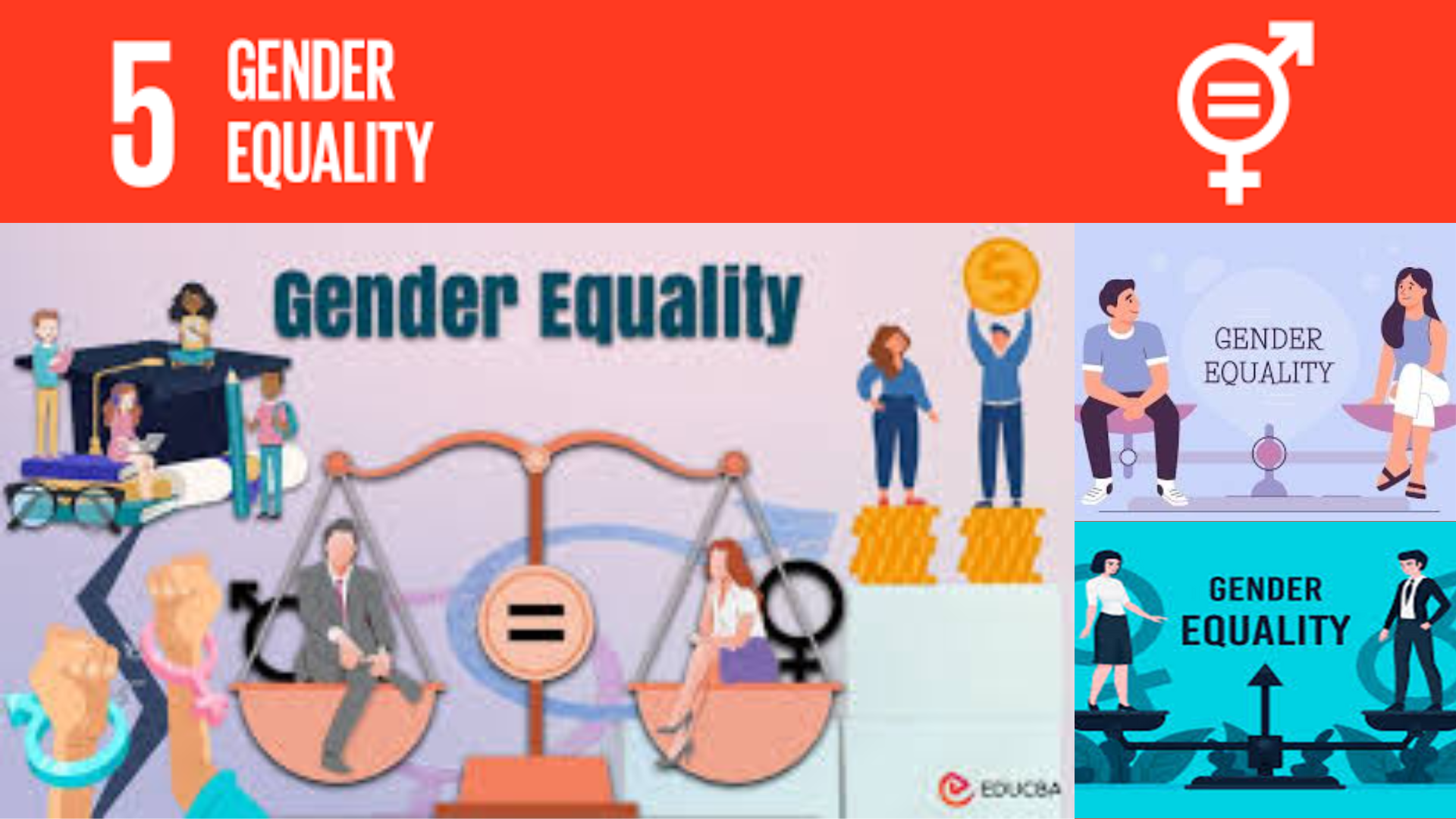♀️ SDG 5: Gender Equality
Goal:
Achieve gender equality and empower all women and girls.
🌐 Why SDG 5 Matters
Gender equality is a fundamental human right and a cornerstone of peaceful, prosperous societies. Empowering women and girls benefits families, communities, and economies.
-
👩⚖️ Women and girls still face widespread discrimination, violence, and inequality worldwide.
-
💼 Globally, women earn on average 20% less than men and are underrepresented in leadership.
-
🚫 1 in 3 women experience physical or sexual violence in their lifetime.
-
📚 Girls face barriers to education, impacting their lifelong opportunities.
-
👶 Women often lack equal access to healthcare, land rights, and financial resources.
-
🌍 Gender equality helps reduce poverty, improve health, and drive sustainable development for all.
🧭 Key Targets of SDG 5
| Target | Description | Target Year |
|---|---|---|
| 5.1 | End all forms of discrimination against women and girls everywhere | 2030 |
| 5.2 | Eliminate all forms of violence against women and girls, including trafficking and sexual violence | 2030 |
| 5.3 | Eliminate harmful practices, such as child marriage and female genital mutilation (FGM) | 2030 |
| 5.4 | Recognize and value unpaid care and domestic work, promote shared responsibility | 2030 |
| 5.5 | Ensure women’s full and effective participation in leadership and decision-making | 2030 |
| 5.6 | Ensure universal access to sexual and reproductive health and rights | 2030 |
| 5.a | Undertake reforms to give women equal rights to economic resources, property, and land | Ongoing |
| 5.b | Enhance use of technology to promote women’s empowerment | Ongoing |
| 5.c | Adopt and strengthen policies and enforce laws to achieve gender equality | Ongoing |
📊 Progress and Challenges
Progress:
-
📈 Increased female enrollment in education worldwide.
-
👩💼 More women in political office and corporate leadership roles.
-
🔍 Greater global awareness and activism against gender-based violence.
-
📲 Use of technology empowering women through education, finance, and communication.
Challenges:
-
🚫 Violence against women remains pervasive and often unreported.
-
🧒 Child marriage and FGM still affect millions annually.
-
💼 Women remain underrepresented in STEM fields and high-paying jobs.
-
💸 Gender pay gaps persist worldwide.
-
🔒 Unequal access to healthcare, including reproductive services.
-
🏠 Disproportionate burden of unpaid domestic and caregiving work on women.
🧠 Who Is Involved?
-
Governments: Enact and enforce gender equality laws, provide education and healthcare.
-
UN and International Organizations: UN Women, UNICEF, WHO drive policies and programs for gender equality.
-
NGOs and Activists: Campaign for women’s rights, protection, and empowerment.
-
Educational Institutions: Promote girls’ education and gender-sensitive curricula.
-
Private Sector: Implement gender-inclusive workplace policies and leadership.
-
Individuals (You!): Challenge stereotypes, support women’s rights, and promote equality in daily life.
🌐 International Agreements Supporting SDG 5
-
Convention on the Elimination of All Forms of Discrimination Against Women (CEDAW, 1979) – A key international treaty.
-
Beijing Declaration and Platform for Action (1995) – Blueprint for advancing women’s rights.
-
UN Women’s HeForShe Campaign – Engages men and boys in gender equality.
-
Sustainable Development Goals (2015) – Places gender equality as a central goal for global development.
🧩 How You Can Help
-
📚 Support girls’ education and empowerment programs.
-
🗣️ Speak out against sexism, discrimination, and violence.
-
👫 Promote shared domestic responsibilities in your home.
-
💼 Support women-owned businesses and gender-equal workplaces.
-
🎓 Mentor or support women and girls in your community or workplace.
-
📢 Use social media to raise awareness and celebrate women’s achievements.
-
🗳️ Advocate for policies and leaders who prioritize gender equality.

